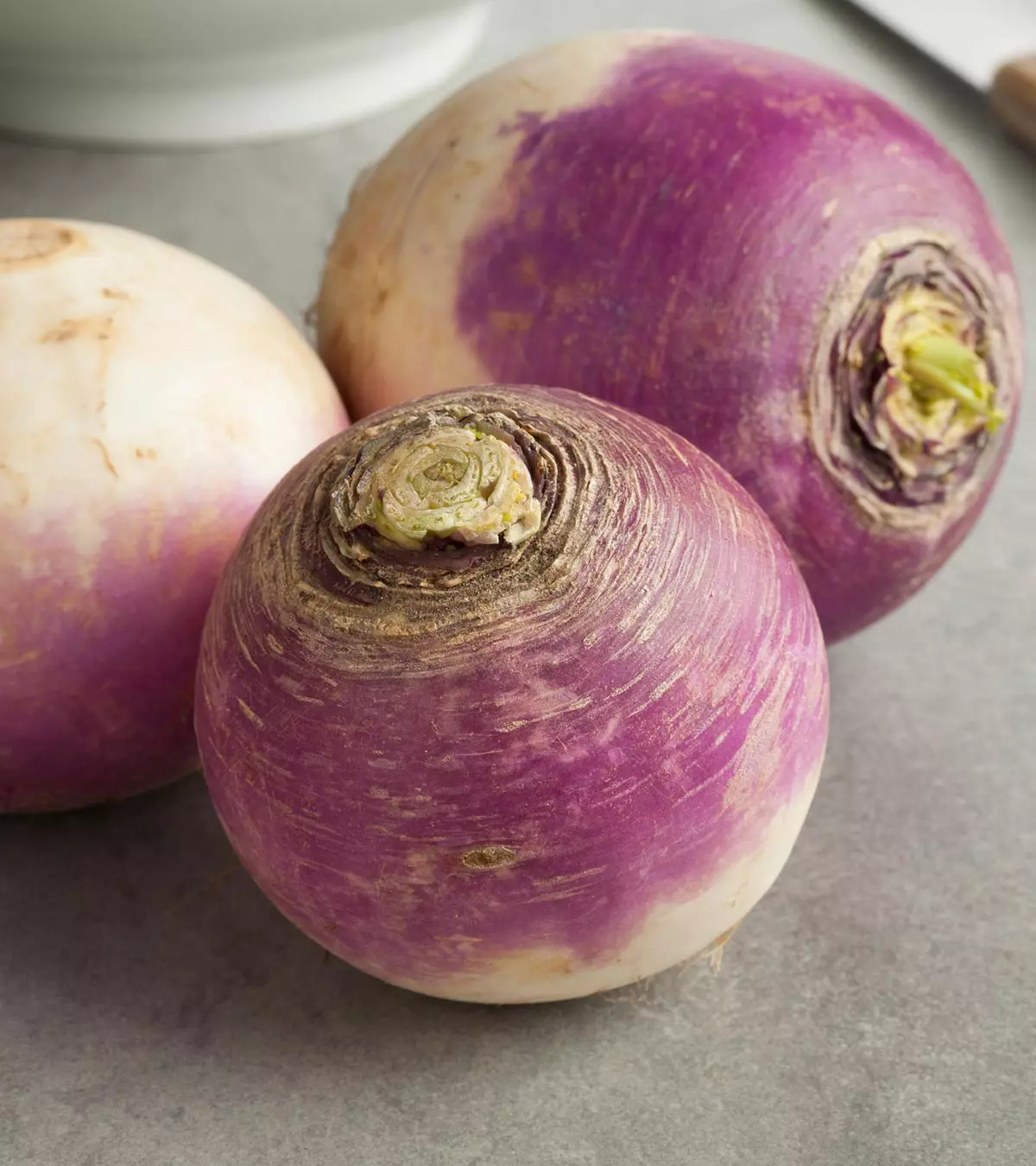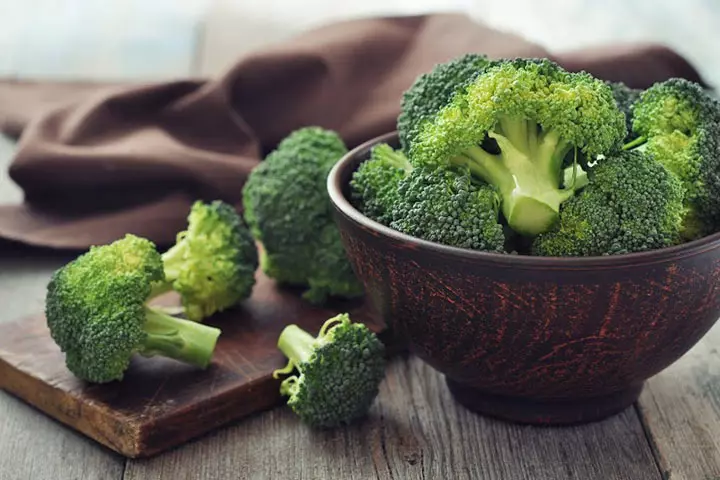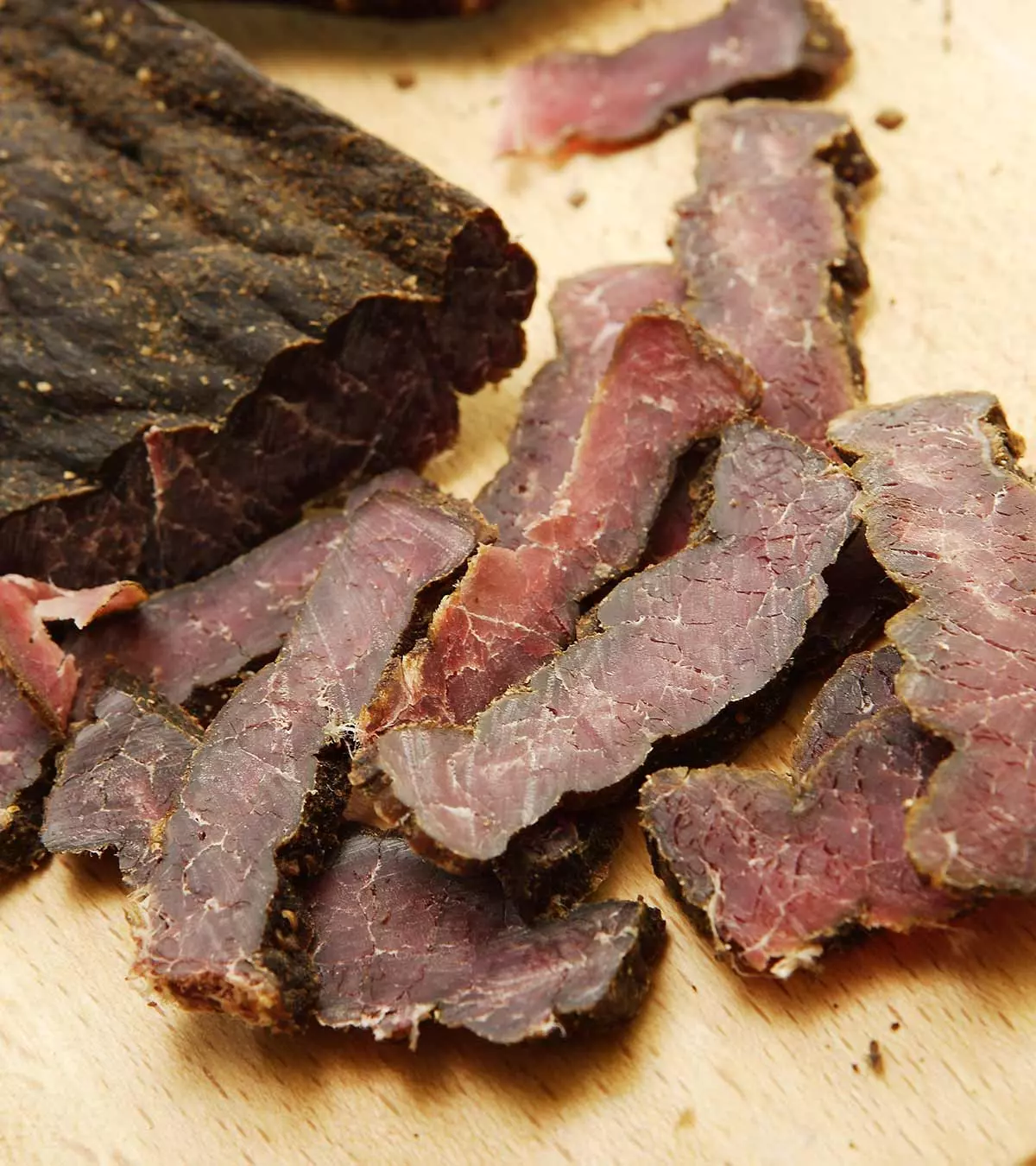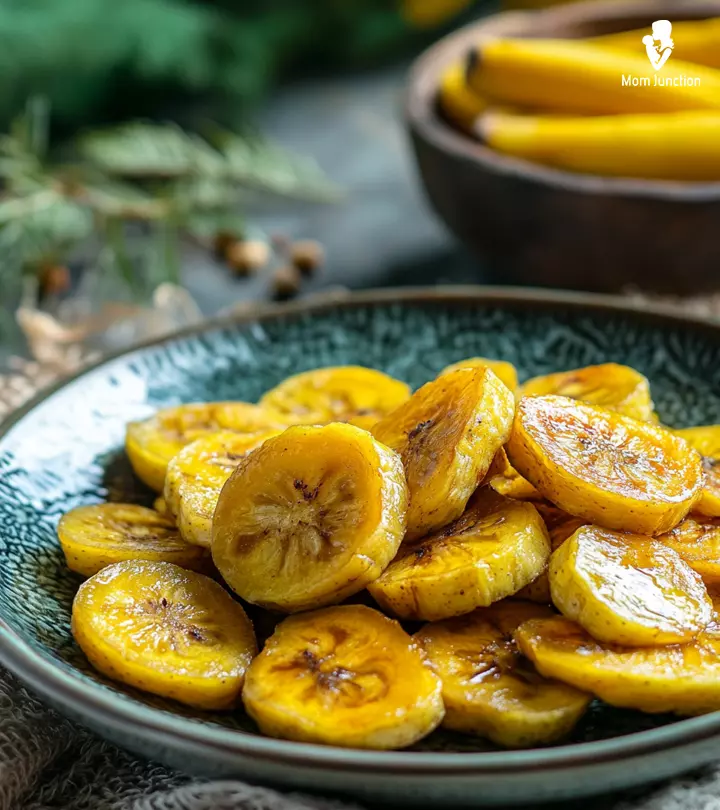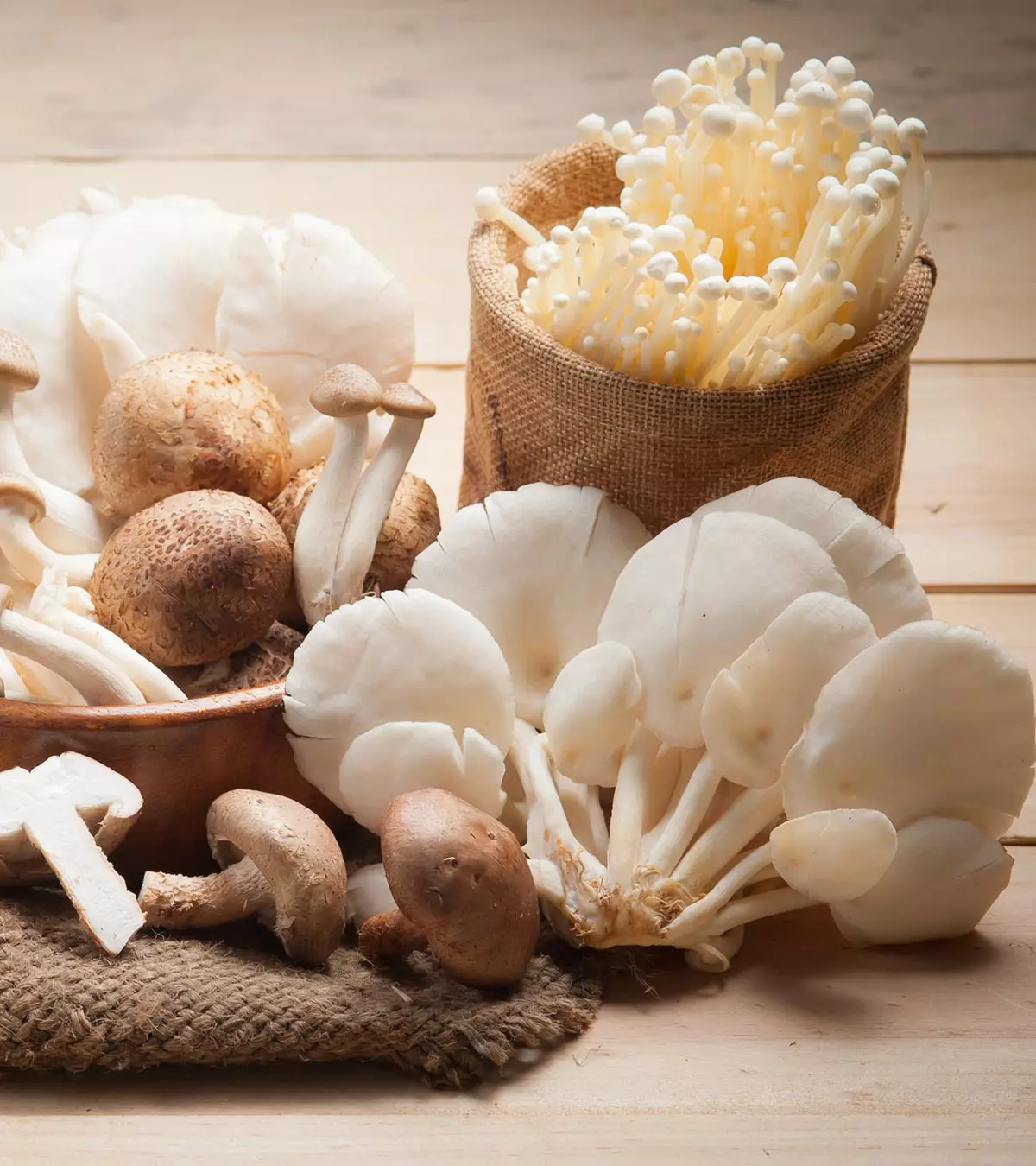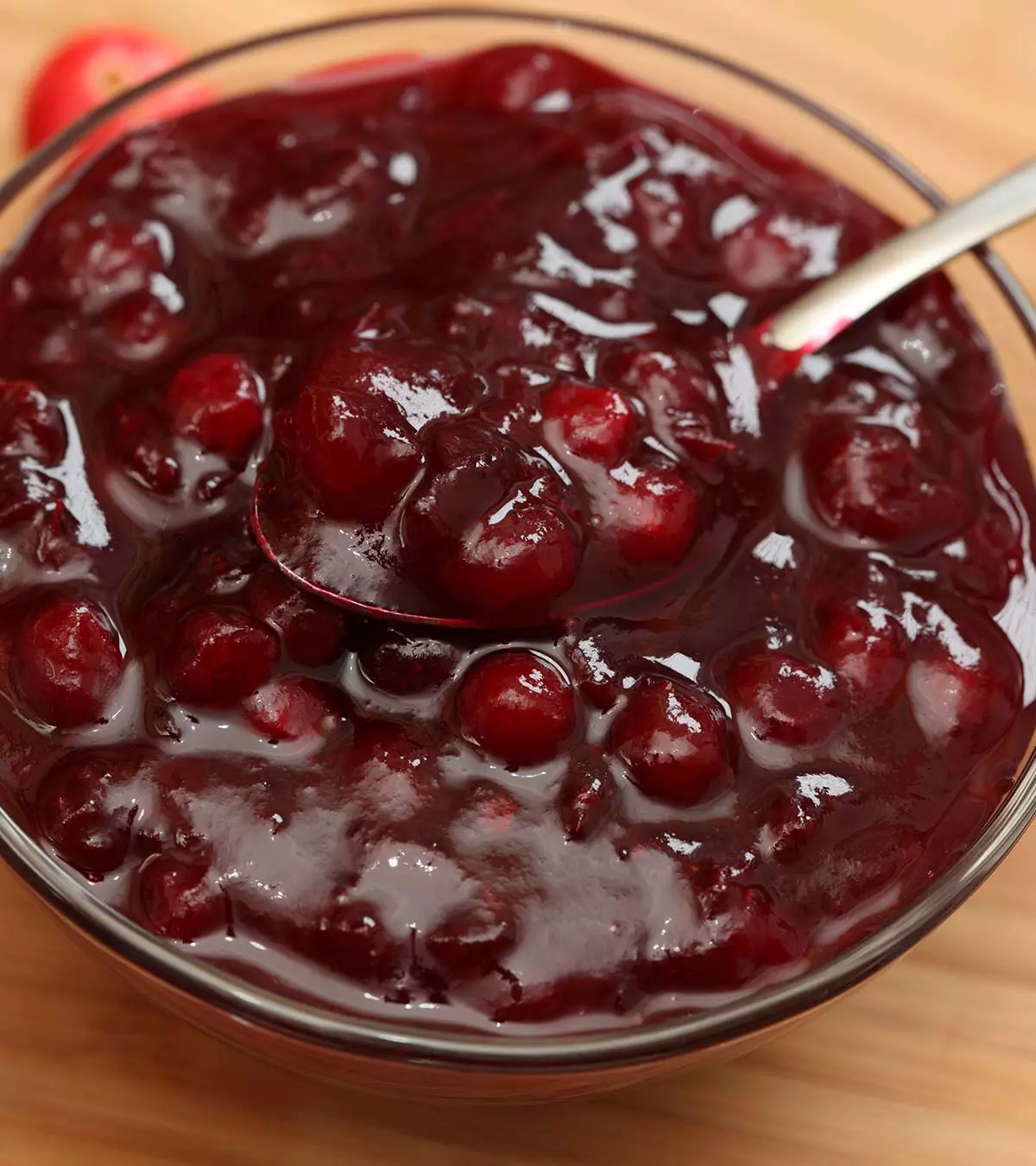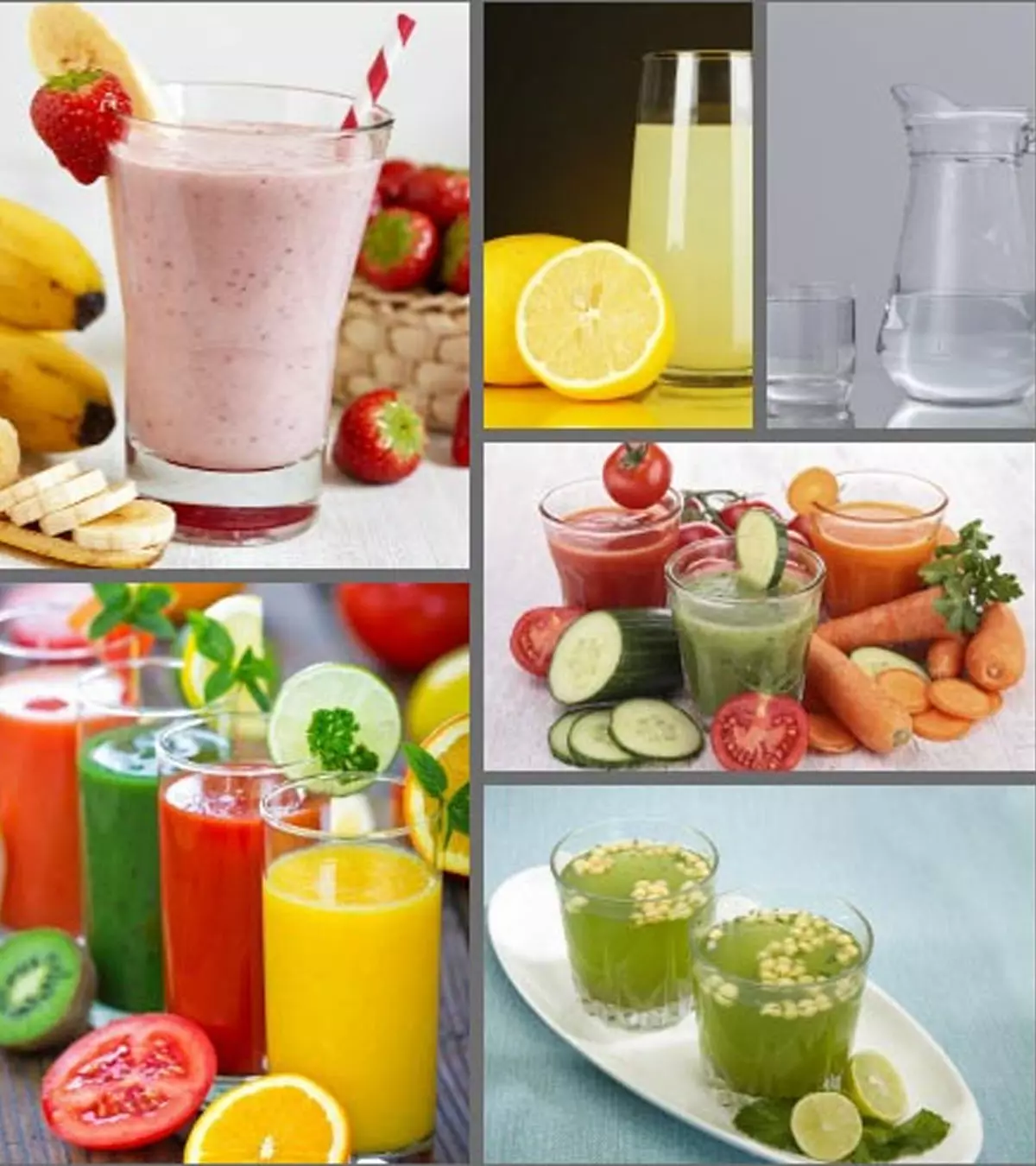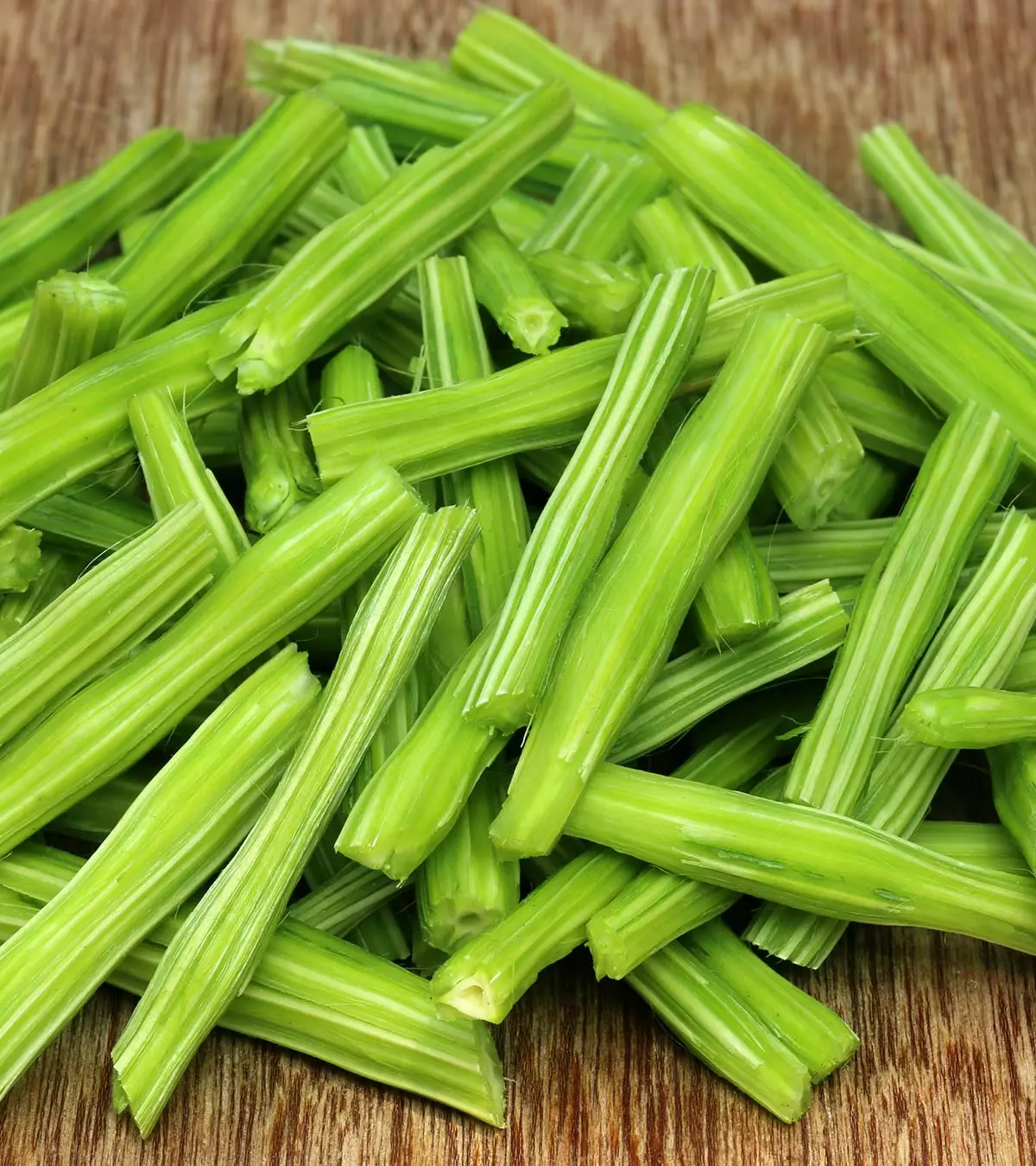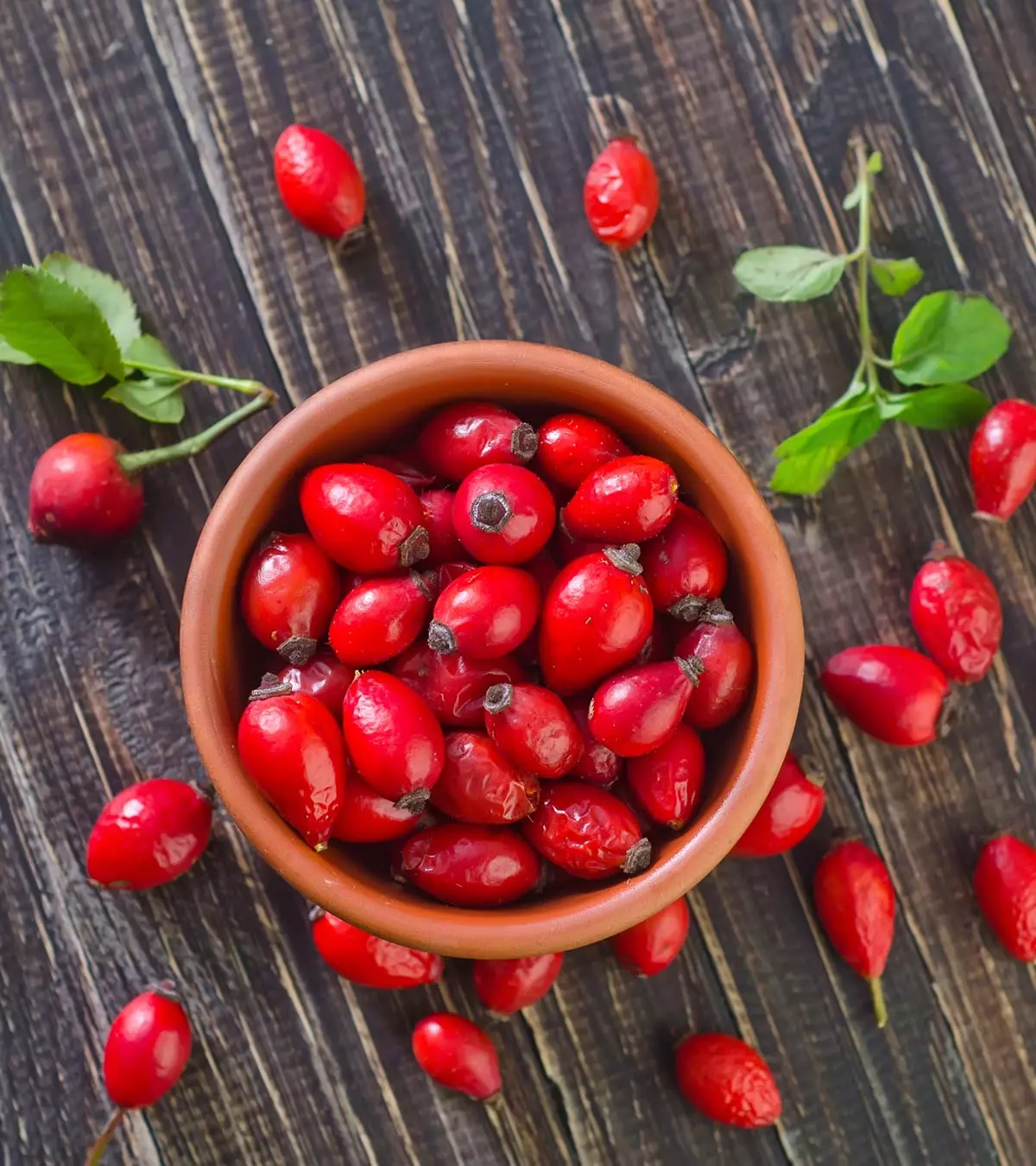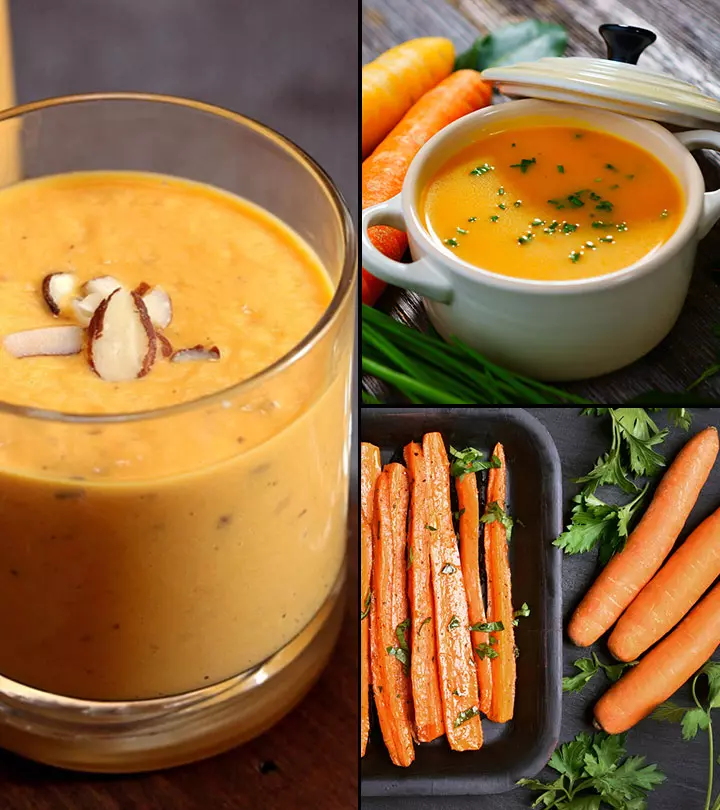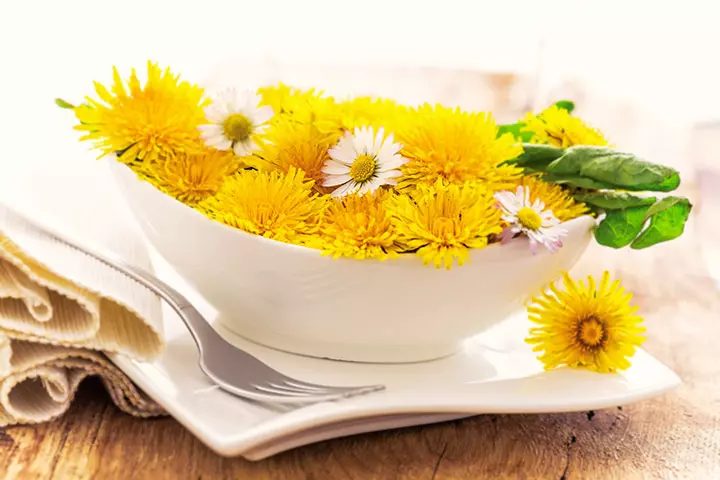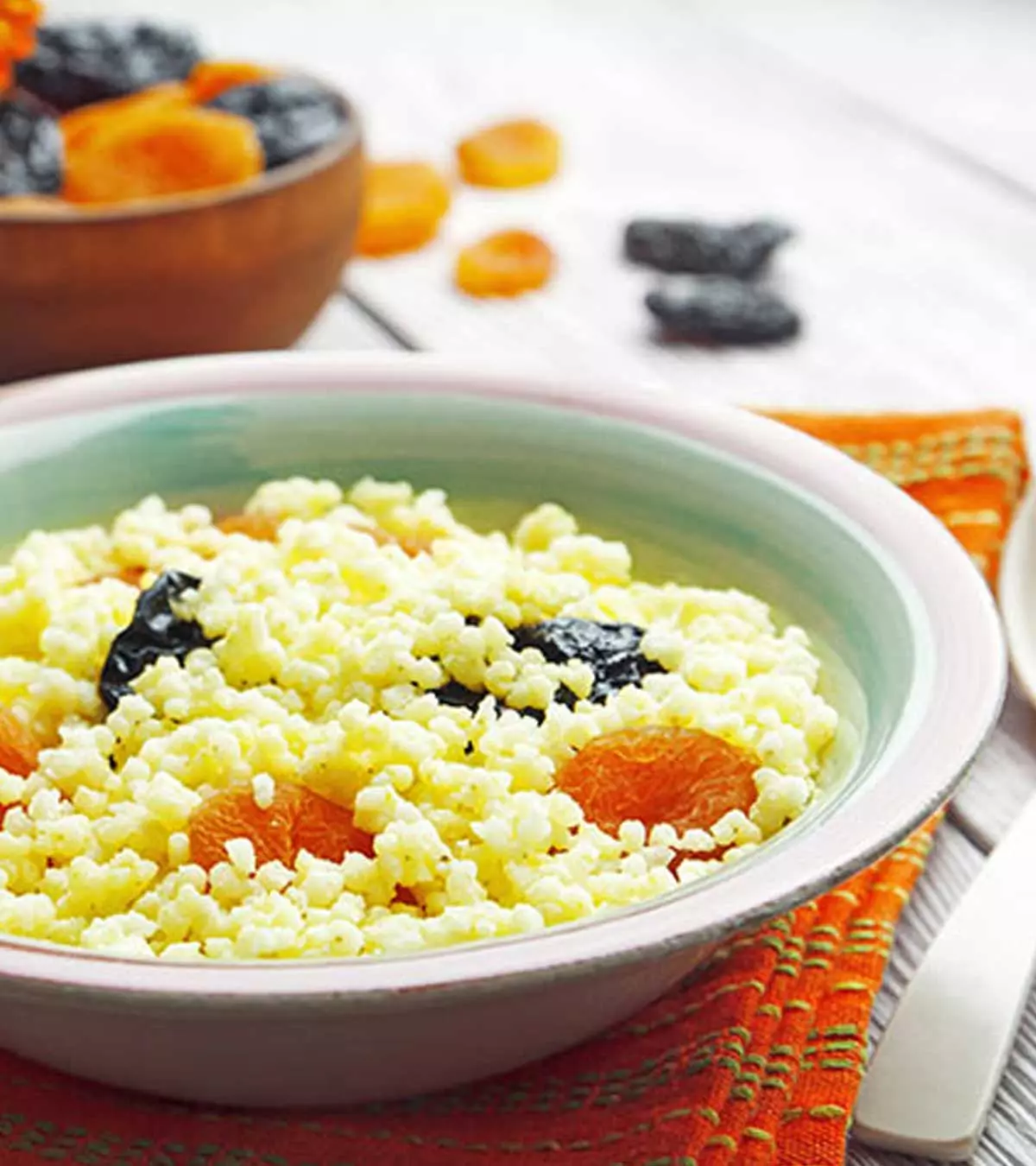
Image: ShutterStock
Barley for babies can be highly nutritious and filling.
It has become a preferred choice of solid food because of its smooth consistency, which allows it to be easily incorporated in stews and soups.
Barley is a good source of fiber, vitamins and minerals (1). In addition, cooking barley is simple and less time-consuming, so you can easily make tasty recipes with it.
Read this post for more information on the nutritional content of barley, its health benefits, healthy recipes for babies, and some tips to remember while using it.
Key Pointers
- Barley is a nutrient-rich food that can be added to a baby’s diet after six months of age.
- It is not recommended as the first food for babies, especially if they are sensitive to wheat or gluten.
- Barley has antifungal properties and can strengthen bones and liver.
- Soaking barley before cooking can increase nutrient absorption and digestibility.
- Good quality pearled or hulled barley is best for babies and can be stored in powdered form in airtight containers.
- Barley salad and barley apple porridge are some tasty and mess-free recipes for babies.
Goodness Of Barley For Your Baby
Although barley is not a common food these days, it is one of the most nutritious grains naturally available.
It contains lots of fiber, amino acids, complex carbohydrates, copper, B vitamins, manganese, iron, and phosphorus. One cup of cooked barley contains the following nutritional value (2):
- Protein – 3.55 gms
- Vitamin A – 11 IU
- Vitamin C – 0 mg
- Thiamine – 0.13 mg
- Riboflavin – 0.09 mg
- Niacin – 3.23 mg
- Folate – 25 mcg
- Trace amounts of other vitamins
- Phosphorus – 85 mg
- Potassium – 146 mg
- Calcium – 17 mg
- Magnesium – 35 mg
- Iron – 2.09 mg
- Sodium – 5 mg
When Can Your Baby Eat Barley?
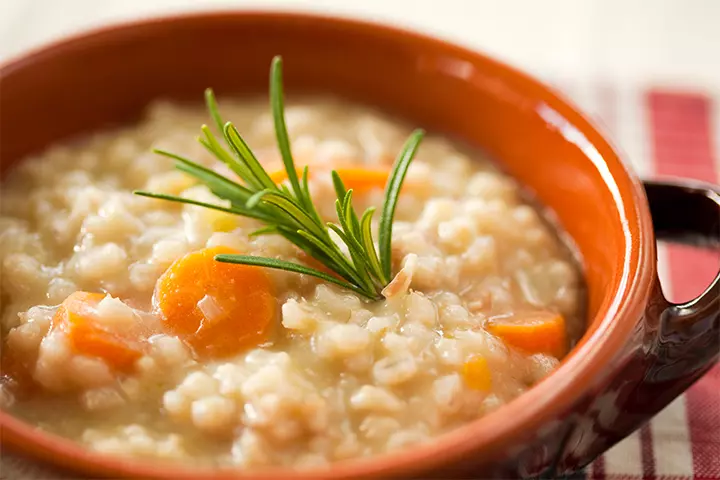
Since barley is known to contain gluten, a protein that gives its chewy texture (as also found in wheat and rye), many experts recommend introducing it to babies after six months. Gluten, if introduced earlier than six months, can increase the risk of a child developing Celiac – a serious condition where the body’s immune system attacks its tissues (3).
Also, barley should never be introduced to your baby as the ‘first infant food’. If they are allergic to wheat, you have another reason to avoid introducing barley as there may be a direct relation between rare barley allergy and wheat allergy.
 Point to consider
Point to considerHealth Benefits Of Barley For Babies
Barley is an excellent source of soluble as well as insoluble fiber that ensures the overall good health of your baby. Following are the benefits you can expect by offering barley to your baby:
1. Dietary fiber:

Barley is rich in dietary fiber that makes it an ideal food for your little ones. It regulates free bowel movements and, therefore, keeps your baby healthier and stronger (1).
2. Strengthens bones:
Barley is a calcium-rich food that also contains a high quantity of phosphorus. Calcium and phosphorus play a prominent role in strengthening the bones. Therefore, for your baby’s strong bones, you should include barley in their diet (4).
3. Strengthens the liver:
Barley is effective in protecting and strengthening the liver.
Studies also reveal that including this cereal in diet shows a notable effect in protecting the liver against damage (5).
4. Antifungal action:
Barley seeds are effective against any fungal attacks on the body. They contain some biochemicals like proanthocyanidinsiPlant pigments that impart red, blue, and purple color and may have anti-cancer properties , flavonoidsiA group of naturally-occurring antioxidant and anti-inflammatory compounds found in plants and fruits and chrysoerioliA bitter-tasting flavonoid found in plants that belong to flavonoids that are known to have antifungal properties (6).
How To Cook Barley Cereal For Babies?
Barley is one of the nutritious cereal grains, like oats and brown rice, that is simple to make and doesn’t take much time. You can quickly choose to make it even during the stressful time frame.
The easiest way of cooking barley is to boil one cup of barley seeds in 3 cups of water. Bring the water to boil, add barley seeds, and again boil them to a simmer.
If you choose pearl barley, it requires less water and takes around 40 min to cook. For pot (polished) barley, it may take one hour, and hulled barley takes nearly 1 1/2 hours.
How to Cook Barley Faster And Easier:
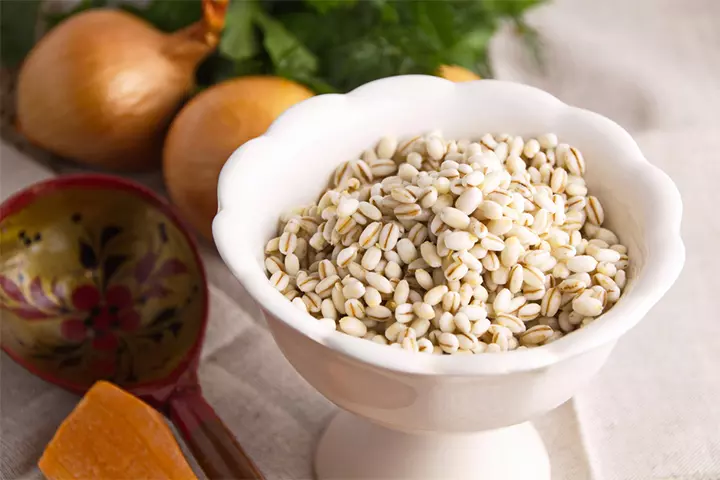
You should soak barley first. Soaking for a long time makes the nutrients easily absorbable and also increases their digestibility.
Take barley in a bowl, wash it properly and add water enough to cover the seeds. Leave it overnight, strain the following morning and keep the water as it is nutrient-rich. It can be used in soups, dals, and even for kneading dough.
 Quick tip
Quick tipYou can also store them in the refrigerator for about 2 days and cook whenever you like.
Yummy Barley Recipes For Your Baby
Barley can be used to make baby cereal, but there are several other ways to add this nutritious whole grain to your baby’s weaning diet. Here we take you to some interesting and tasty recipes you can make for your little one:
1. Barley apple porridge for babies:

You require whole barley, apples, and water to prepare barley apple porridge. It can be the best solid food to introduce to your baby.
Here is how to make it:
- First, cook barley by adding one cup of barley and 3 cups of water in a pressure cooker. Cook for 5 whistles and then simmer for about 15 – 20 minutes.
- Let the steam go all by itself and check if the barley is properly cooked.
- Add the chopped apples, 1/2 cup of water and now cook for about 2 minutes.
- Puree the mixture in a blender until it turns smooth.
- Take the porridge into a bowl and feed your little one.
2. Barley and potato balls:
Barley has a yummy and nutty flavor that is incredibly versatile and can be taken in different ways. Therefore, it makes great weaning food. You require soft pearled barley (1 cup), applesauce, sweet potato and a pinch of nutmeg, cinnamon and ginger.
Here is how to make it:
- You need to mix all the ingredients in a bowl.
- Make small balls or create plops to make finger foods.
3. Barley salad:
You can offer barley salads to your baby when she turns 6 months. For this, you require soft cooked barley, soft chicken or beef, peas and carrots.
Here is how to make it:
- Take all the ingredients in a bowl and toss.
- You can serve it as a finger food with a snack or meal.
4. Barley water for babies:

You can start giving barley water while weaning your baby at around 10 to 12 months. You can also flavor it with jaggery, but only after the approval from a pediatrician.
Here is how to make it:
- Add 1 cup of barley and 1 1/2 cups of water in a pressure cooker. Cook for about 3 whistles.
- Let the steam escape before you open the lid.
- Blend the mixture until it is smooth.
- Now strain the mixture and serve lukewarm.
5. Barley khichdi
Once your baby begins eating various foods from different food groups, you can feed them barley khichdi loaded with seasonal veggies. You can add some lemon juice to this recipe to enhance its taste and nutritional value.

Here is how to make it:
- Warm up a teaspoon of ghee in a pressure cooker on low-medium heat.
- Add cumin powder, carrots, potatoes, and green peas. Stir well.
- Add two tablespoons of moong dal and one-fourth cup of barley. Keep stirring the mixture to ensure no lumps form.
- Sprinkle some turmeric and hing into the mixture.
- Add a cup of water and mix well. Close the lid and let the khichdi cook until it whistles thrice.
- Once done, put some khichdi in a bowl and mash it with a spoon or ladle.
- Feed it to your baby while the khichdi is still warm.
 Caution
Caution6. Barley And Vegetable Puree
Blending cooked barley with regular vegetable purees can enrich the overall nutritional component of the dish. This simple yet wholesome recipe offers a nutrient-dense meal for your little one.
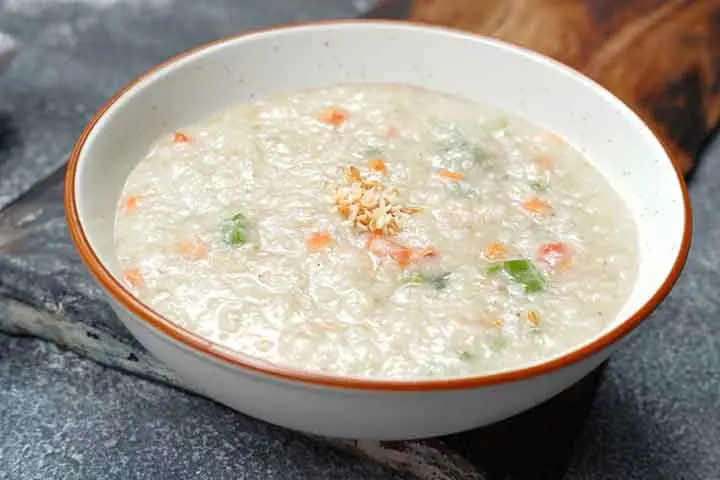
Here is how to make it:
- Rinse two tablespoons of barley under running water.
- Keep it soaked in water for about 30 minutes.
- Chop vegetables like carrots, beans, and potatoes. Rinse the vegetables under running water.
- Cook the soaked barley with 1.5 cups of water in a saucepan, bring it to a boil, and then let it simmer for 15-20 minutes under low heat.
- Add the chopped vegetables to the barley and add extra water if necessary.
- Cook the barley and vegetables for another 10-15 minutes until they become soft.
- Let the mixture cool, and then blend it.
- Serve the puree to the baby during meal times.
Points To Remember
Mothers generally prefer home-cooked barley cereal. In case you are purchasing barley from stores, make sure they are pearled or hulled, as whole barley can be removed easily from the hull. See to it the grain is powered well in a food processor or blender.
- Never buy the whole barley for your baby as the germ layer is hard to digest.
- You can store pearled barley for several months in a cool and dry place. Store them in airtight containers and preferably place them in a refrigerator.
- Look for the ‘best if used by …date’ on the pack.
- If you aren’t using your barley frequently, it’s good to check if it is still fresh and worth consuming.
- Pearled barley cooks up fast, which is one of the biggest advantages associated with it.
- In case you are grinding your barley, the natural oils will get rancid if you do not refrigerate.
- If you are buying whole grains, it is best to try smaller quantities in the beginning.
Frequently Asked Questions
1. Is barley good for a baby’s constipation?
Fiber foods for babies, such as barley may help alleviate constipation and support healthy digestion. A hundred grams of barley contains 17.3 grams of fiber (7). Lack of fiber could be the source of constipation in babies who have started to consume solid foods (8). Hence, if your baby has constipation, you may feed them barely after a pediatrician’s recommendation.
2. Is barley good for a gassy baby?
Barley might not be suitable for a gassy baby as it might contribute to the issue. This cereal grain is high in insoluble fiber, which does not break down inside the intestines (9). This indigestion could cause bloating in some babies.
3. Is barley tea suitable for babies?
Barley tea is similar to barley water but is made of roasted grains. It is a non-caffeinated beverage and hence safe for babies. If your baby is allowed to consume barley by your pediatrician, they may consume barley tea as well. But ensure to prepare the tea at home as it will be devoid of any preservatives.
4. Can barley be used as a substitute for rice in baby food?
Yes. Like rice, barley is rich in iron, fiber, carbohydrate, protein, and other nutrients. Therefore, you can substitute rice with barley in your baby’s food.
Barley for babies is one of the iron-rich foods that contain a significant amount of fiber and several other micronutrients, such as calcium. Feeding this chewy-textured grain well-cooked to babies ensures easy digestion and absorption. You can feed your baby plain barley porridge or add various fruits and vegetables in a mashed or pureed form to make your baby’s delectable and sumptuous meal. Making this nutrient-dense food a part of a well-balanced, healthy eating regimen can offer your baby several health benefits in the long run.
Infographic: Barley-Based Food For Babies
Barley is a fibrous food that can be included in a baby’s diet for its innumerable benefits. Infants can be given barley in various cooked forms. Scroll through the infographic below to discover barley-based foods for your little one.

Illustration: Momjunction Design Team
Illustration: Barley For Babies – Everything You Need To Know
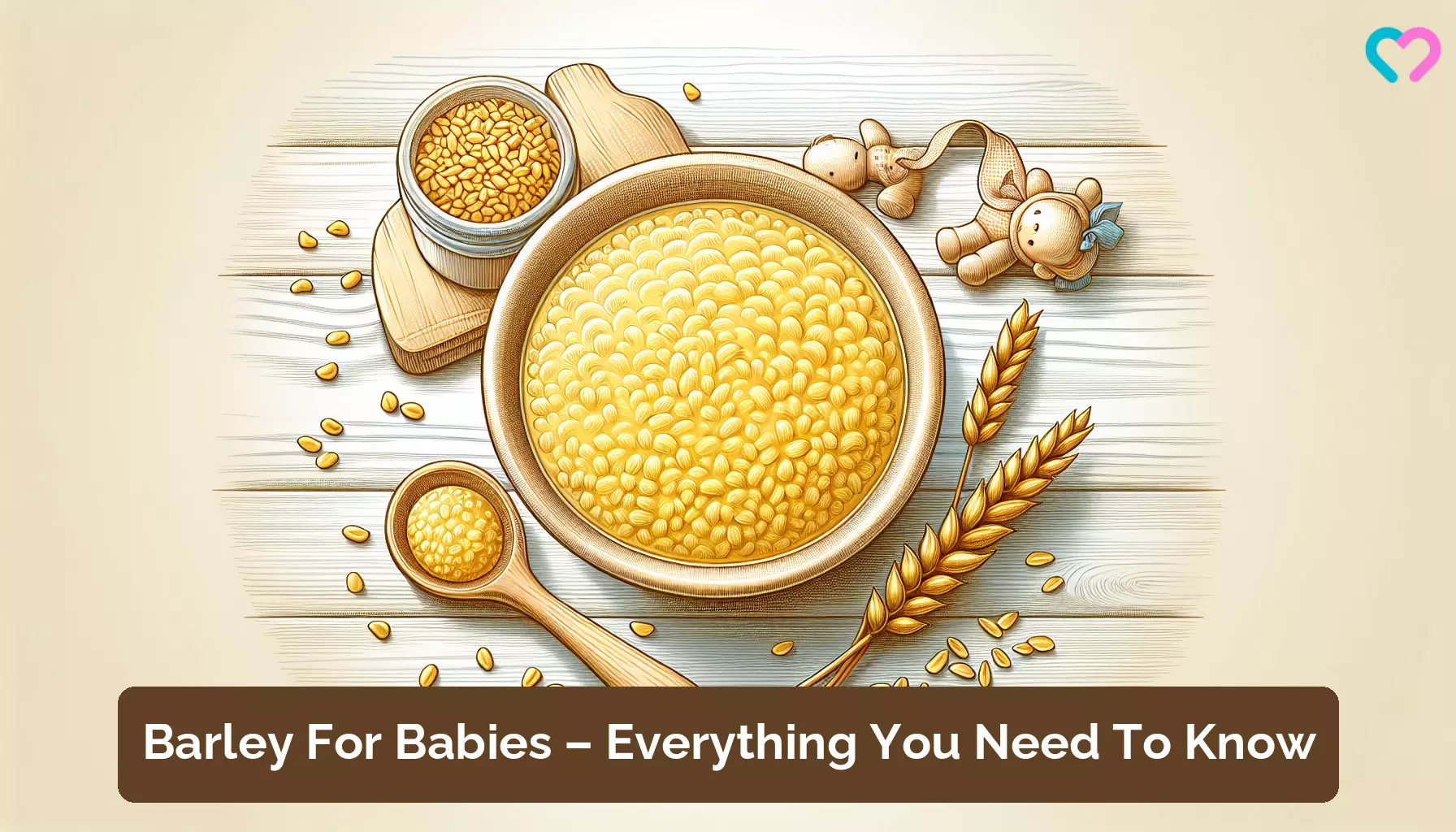
Image: Dall·E/MomJunction Design Team
Master the art of crafting barley water, a recipe brimming with health benefits, tailored specifically for babies and kids. Watch as it becomes a delightful favorite among your little ones.
References
- Grain of the month: Barley
https://www.health.harvard.edu/heart-health/grain-of-the-month-barley - Barley, cooked, pearled.
https://www.nutritionvalue.org/Barley%2C_cooked%2C_pearled_nutritional_value.html - Celiac Disease.
https://kidshealth.org/en/kids/celiac.html - Yawen Zeng et al.; 2018; Preventive and Therapeutic Role of Functional Ingredients of Barley Grass for Chronic Diseases in Human Beings.
https://www.hindawi.com/journals/omcl/2018/3232080/ - Mohammad A. Jebor et al.; 2013; Characterization and antimicrobial activity of barley grain (Hordeum vulgare) extract.
https://www.ijcmas.com/vol-2-8/Mohammad%20A.%20Jebor,%20et%20al.pdf - Grain of the month: Barley.
https://www.health.harvard.edu/heart-health/grain-of-the-month-barley - Barley hulled;
https://fdc.nal.usda.gov/fdc-app.html#/food-details/170283/nutrients - Constipation in babies;
https://www.pregnancybirthbaby.org.au/constipation-in-babies - 15 foods that might cause bloating in babies;
https://health.clevelandclinic.org/foods-that-cause-bloating - R J Fabius, et al; Malnutrition associated with a formula of barley water, corn syrup, and whole milk
https://pubmed.ncbi.nlm.nih.gov/6894664/ - Food Protein-Induced Enterocolitis Syndrome (FPIES).
https://acaai.org/allergies/allergic-conditions/food/food-protein-induced-enterocolitis-syndrome-fpies/
Community Experiences
Join the conversation and become a part of our nurturing community! Share your stories, experiences, and insights to connect with fellow parents.
Read full bio of Dr. Shikha Sharma
Read full bio of Jessica Albert
Read full bio of Swati Patwal
Read full bio of Vidya Tadapatri








